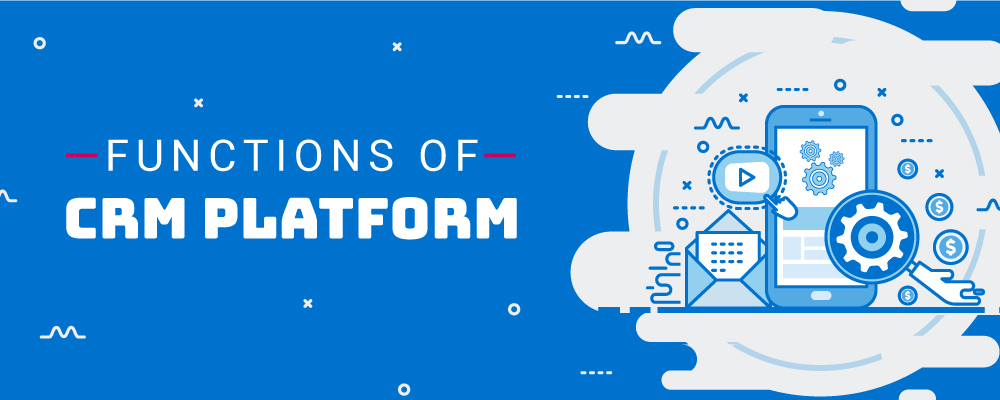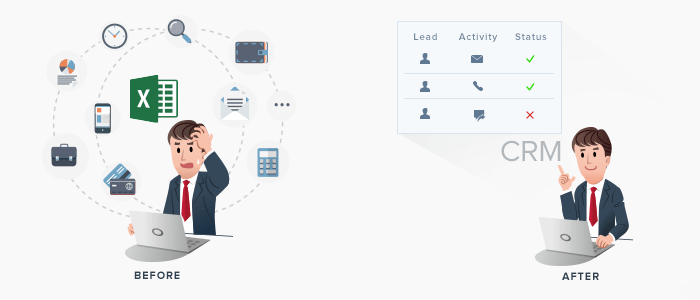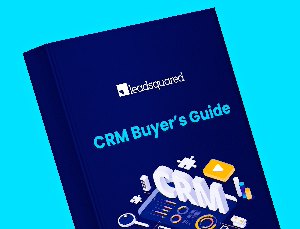For a business to be successful, it has to maintain good relationships with its customers. This is the cornerstone of any business that has succeeded. Before the advent of a CRM platform, the process of tracking and managing customer relationships was quite time-consuming. To be frank, there was barely any structure and proper process for it. Companies stored such customer data in spreadsheets, filing cabinets, etc and the whole thing was quite fragmented.

It involves too much manual work and wasted a lot of valuable time. It also meant that they couldn’t distribute the data properly amongst the different departments. A lot of potential business opportunities were lost in this confusion. However, this is not a problem anymore since the internet allowed the creation of new marketing technology. From here, we got CRM.
What is a CRM platform?
CRM is an abbreviation for Customer Relationship Platform. A CRM platform refers to the technology used by a company to manage all interactions with customers while recording key information that may be generated during these engagements.
CRM data is a crucial part of the tech stack and essential for a more personalized experience. Having CRM data on a unified platform will enable marketers to target their customers in a more efficient and accurate way. Demographic data used will include age, gender, education and marital status amongst others. The geographic data used will include the billing or shipping country or city. Other data includes interests, preferences and buyer persona.
What does a CRM platform do?
Even at the most basic level, a good CRM platform allows marketers or sales personnel to manage and analyze the relationships a company has with its potential and actual customers. Every interaction between customers and the company is tracked and the information is collected. Marketers can then view the history of each customer with the company and know who they are. It makes every future interaction much more personalized and increases chances of conversion. It also encourages loyalty and trust from customers. To put it simply, it will manage the relationships and interactions of the company with its current and potential customers. The simple goal is to improve business relationships.

CRM platforms will allow tracking if customer and company interactions with the various available touchpoints:
- Phone call
- Social media
- Contact form
- Search engine
The CRM software will take care of certain processes like automation of the marketers repetitive tasks or setting reminders for any important events. There are certain CRMs that even offer analytics capabilities and this allows tracking of the efficiency of different marketing efforts. You can see what led to a better generation of leads or conversions.
What it can do
A CRM platform will contain a lot of information about customers and their interaction with your business. This will include conversations, past activities as well as purchases. Hence a lot of potential strategies or subsequent tools are available for leveraging this data.
- Email campaigns are used for tracking customer activity
- Customer satisfaction surveys are conducted
- Social media responses are evaluated
- Customers are segmented for more targeted outreach
- Personalized offers and promotions are provided
- Customers are notified of any important updates or a product announcement
- Customer support follow-ups are managed
- Purchase history is integrated for customer loyalty programs
Some important functions of a CRM platform
A good CRM platform will typically offer the following functionalities:

Lead management. CRM will track the leads for the business and allow its marketing team to enter all new leads into the system. This will allow tracking and analyzing the data.
Marketing automation. It will offer marketing automation functionalities which will automate tedious tasks. For instance, social media posts will automatically be published according to a schedule set by the marketer. Marketing automation makes it easier to engage sales leads and helps in converting them into paying customers.
Sales automation. It can track all customer interactions and selected sales cycle business functions can be automated. These are the functions that are important for following up on leads or attracting new customers.
Workflow automation. It will help the business to optimize processes. Mundane workloads are steaminess and this enables the employees of that business to focus on a more high level or creative tasks.
Analytics. There are built-in analytics tools which provide insight and help to boost rates of customer satisfaction. The data is analyzed by marketers and they then create more targeted campaigns. It will also provide insight into customer experience and allow improvements.
Artificial intelligence. Some also offer AI capability that is built into their system. It helps in automatically recognizing patterns that will lead to successful sales. This will help in building strategies that are more accurate in the future.
Personalized customer experience. It will allow the creation of individualized experiences for customers. The customer experience will also be more consistent across the various marketing channels and this can help in more conversions.
CRM platforms are evolving every day and they offer a wide range of functionalities. Partnering with a company that will offer you CRM development will help you obtain a CRM solution that is scalable and grows along with the growth of your company. Leadsquared is one of the top 100 CRM software products available today. It will help you to develop, improve and retain all your current customers while acquiring new leads.






![[Webinar] Maximizing ROI with WhatsApp CRM](https://www.leadsquared.com/wp-content/uploads/2024/07/Maximizing-ROI-with-WhatsApp-CRM-webinar-popup.gif)
